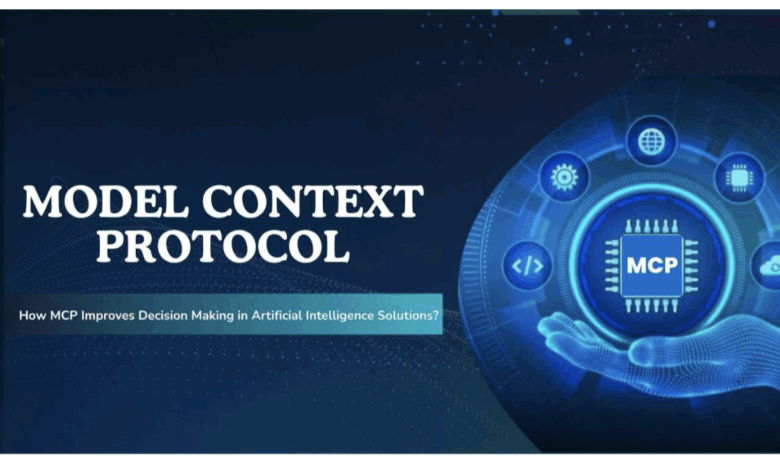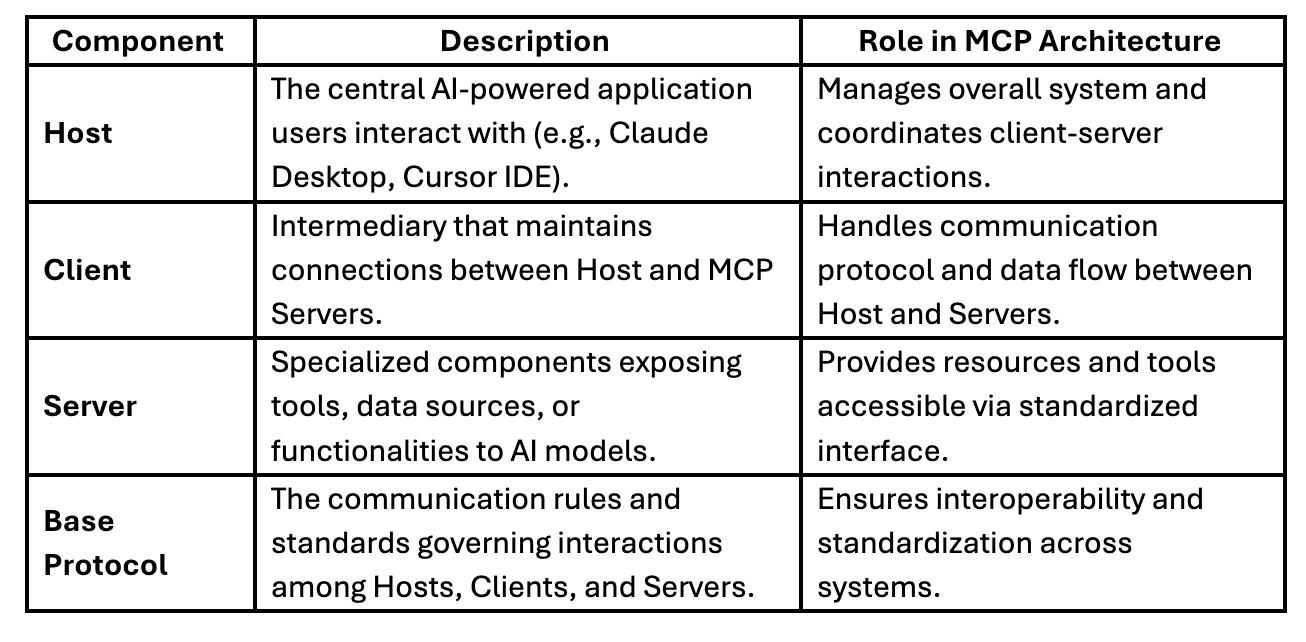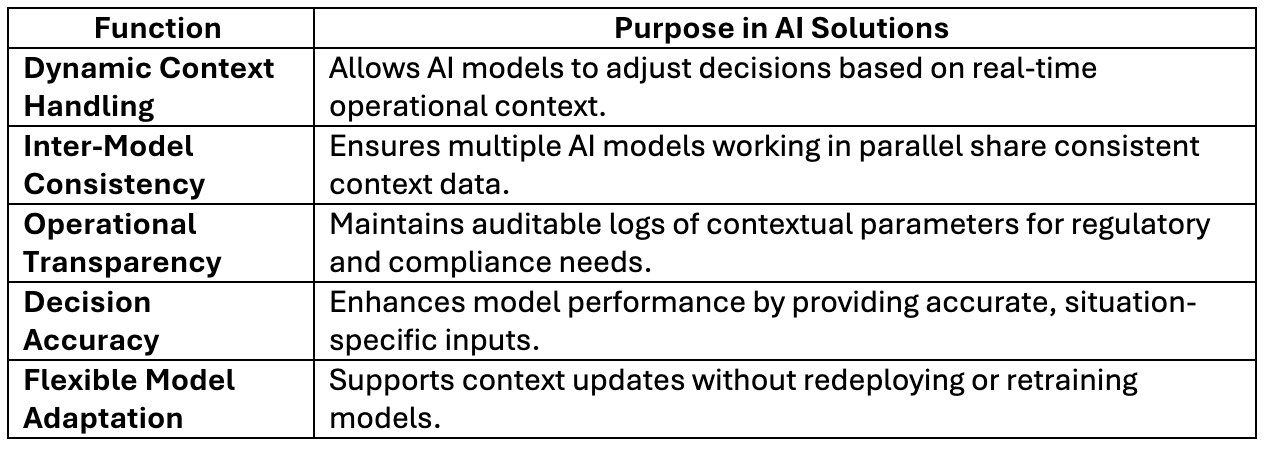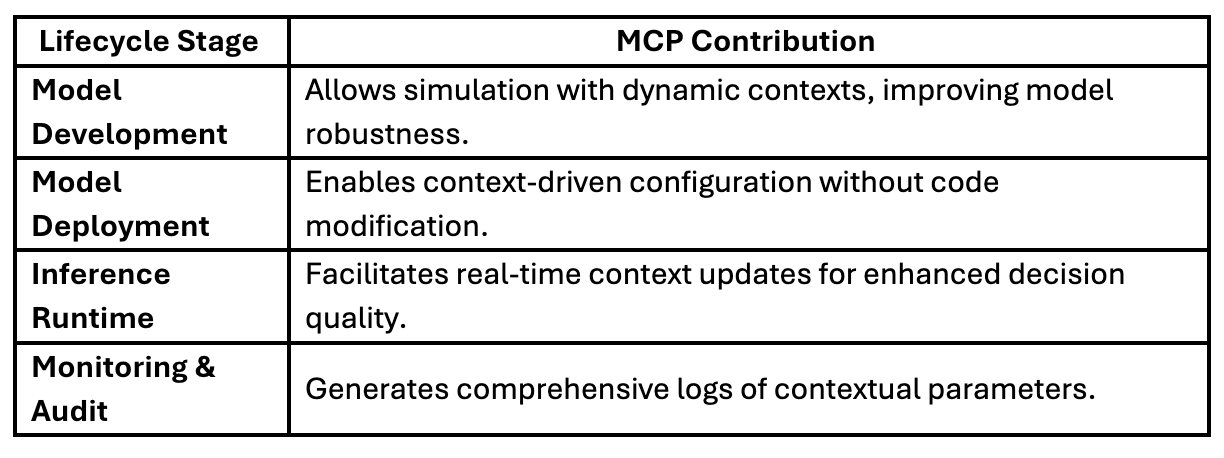
As industries rely more on smart, data-driven systems, AI solutions are taking the lead in solving complex, real-time challenges. But for AI to make truly effective decisions, it needs to understand the context it’s working in. That’s where model context protocol (MCP) comes in — helping AI systems stay relevant, accurate, and adaptable. In this blog, we’ll take a closer look at how MCP is shaping the future of smarter, context aware AI solutions.
What is MCP (Model Context Protocol)?
Model context protocol (MCP) is a structured, standardized framework designed to manage and transmit contextual data between AI models and their operational environments. It guarantees that AI models run on the most current, pertinent contextual data, enhancing the precision, consistency, and flexibility of AI-driven choices in dynamic, real-time settings.
Unlike traditional AI implementations — where context is often handled implicitly or embedded within static configurations — MCP formalizes the process of context acquisition, validation, distribution, and application. It establishes a reliable communication protocol between AI models, APIs, and application layers to ensure seamless, context-aware operations.
Key Components of MCP Architecture
A typical MCP implementation involves several critical components working in tandem. Below is a tabular breakdown of its architecture:
This modular architecture ensures scalability and allows MCP to be integrated seamlessly with diverse AI services, whether in cloud-native applications, on-premises environments, or edge computing frameworks.
Why MCP Matters in AI Deployments?
Artificial intelligence solutions often serve complex, dynamic environments such as finance, healthcare, transportation, and smart manufacturing. In these domains:
- Operational conditions can shift instantly (e.g., market fluctuations, patient emergencies, traffic patterns).
- Multiple models may collaborate on a task (e.g., risk prediction, autonomous navigation).
- Auditable, explainable AI outputs are mandatory for compliance.
MCP addresses these demands by providing a reliable, scalable, and auditable context management framework that enhances generative AI solutions and other intelligent systems.
Key Functions of MCP in AI Systems:
How MCP Enhances AI Lifecycle Stages?
MCP benefits AI operations at various stages of the model lifecycle. The table below highlights its contributions:
For any generative AI development company aiming to scale and secure Generative AI Solutions, MCP ensures operational transparency, adaptability, and traceability at every touchpoint.
Industry Applications of MCP
Several industries have begun leveraging MCP to improve AI system performance:
- Healthcare: Adjusts clinical decision-support systems based on patient history, regional disease outbreaks, and diagnostic equipment configurations.
- Finance: Provides context-aware risk assessments considering market conditions, regulatory updates, and client profiles.
- Autonomous Vehicles: Dynamically alters navigation and safety models based on weather, traffic density, and infrastructure changes.
- Smart Manufacturing: Tailors predictive maintenance models by factoring in machine-specific history and operational loads.
These applications demonstrate MCP’s growing importance for enterprise-grade artificial intelligence solutions providers.
Advantages of Implementing MCP
Adopting a model context protocol framework offers numerous benefits:
- Improved Model Accuracy: Contextually relevant data enhances inference precision.
- Greater Flexibility: Supports dynamic operational adjustments without downtime.
- Enhanced Compliance: Simplifies traceability for regulatory audits.
- Operational Efficiency: Reduces redundancy by managing context centrally.
- Cross-Model Consistency: Standardized context exchange mitigates conflict risks.
Challenges and Considerations
While MCP offers substantial benefits, certain challenges must be addressed for successful adoption:
- Complex Integration: Retrofitting MCP into legacy AI systems can be resource intensive.
- Standardization Gaps: Absence of universally accepted MCP standards may hinder interoperability.
- Latency Overhead: Real-time context management introduces additional processing overhead.
- Security Risks: Sensitive context data requires stringent encryption and access controls.
Organizations must carefully weigh these factors during AI system design and deployment planning.
Conclusion
The capability to comprehend and respond in real time to constantly shifting settings is the key to the future of AI solutions. The model context protocol offers a scalable, systematic approach to improving the intelligence, adaptability, and dependability of AI systems in changing contexts.
Organizations can revolutionize decision-making and system adaptation by using MCP, which will enable AI deployments to reach unprecedented intelligence and dependability levels. Those that invest in context-aware technologies like MCP will be at the forefront of innovation and influence as AI continues to transform our industries.







